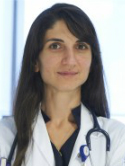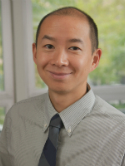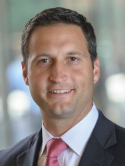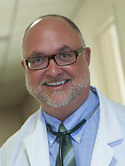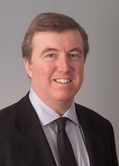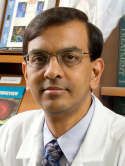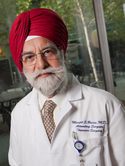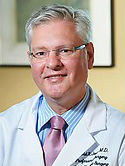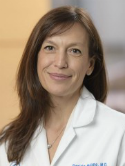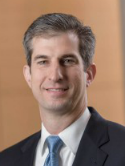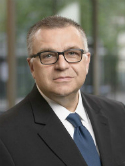Waiting to operate: The risk of salvage esophagectomy Journal Article
| Authors: | Boerner, T.; Harrington, C.; Tan, K. S.; Adusumilli, P. S.; Bains, M. S.; Bott, M. J.; Downey, R. J.; Huang, J.; Ilson, D. H.; Isbell, J. M.; Janjigian, Y. Y.; Park, B. J.; Rocco, G.; Rusch, V. W.; Sihag, S.; Wu, A. J.; Jones, D. R.; Molena, D. |
| Article Title: | Waiting to operate: The risk of salvage esophagectomy |
| Abstract: | Objective: To assess postoperative morbidity, disease-free survival (DFS), and overall survival (OS) in patients treated with salvage esophagectomy (SE). Background Data: A shift toward a "surgery as needed"approach for esophageal cancer has emerged, potentially resulting in delayed esophagectomy. Methods: We identified patients with clinical stage I-III esophageal adenocarcinoma or squamous cell carcinoma who underwent chemoradiation followed by esophagectomy from 2001 to 2019. SE was defined as esophagectomy performed >90 days after chemoradiation ("for time") and esophagectomy performed for recurrence after curative-intent chemoradiation ("for recurrence"). The odds of postoperative serious complications were assessed by multivariable logistic regression. The relationship between SE and OS and DFS were quantified using Cox regression models. Results: Of 1137 patients identified, 173 (15%) underwent SE. Of those, 61 (35%) underwent SE for recurrence, and 112 (65%) underwent SE for time. The odds of experiencing any serious complication [odds ratio, 2.10 (95% CI, 1.37-3.20); P=0.001] or serious pulmonary complication [odds ratio, 2.11 (95% CI, 1.31-3.42); P=0.002] were 2-fold higher for SE patients; SE patients had a 1.5-fold higher hazard of death [hazard ratio, 1.56 (95% CI, 1.25-1.94); P<0.0001] and postoperative recurrence [hazard ratio, 1.43 (95% CI, 1.16-1.77); P=0.001]. Five-year OS for nonsalvage esophagectomy was 45% [(95% CI, 41.6%-48.6%) versus 26.5% (95% CI, 20.2%-34.8%) for SE (log-rank P<0.001)]. Five-year OS for SE for time was 27.1% [(95% CI, 19.5%-37.5%) versus 25.2% (95% CI, 15.3%-41.5%) for SE for recurrence (P=0.611)]. Conclusions: SE is associated with a higher risk of serious postoperative complications and shorter DFS and OS. © Copyright 2023 Wolters Kluwer Health, Inc. All rights reserved. |
| Keywords: | adult; cancer survival; controlled study; human tissue; treatment response; aged; cancer surgery; surgical technique; major clinical study; overall survival; cancer recurrence; intensity modulated radiation therapy; postoperative period; salvage therapy; multimodality cancer therapy; disease free survival; cancer staging; follow up; antineoplastic agent; cancer immunotherapy; computer assisted tomography; heart disease; kidney disease; morbidity; postoperative complication; minimal residual disease; radiation dose fractionation; laboratory test; diabetes mellitus; comorbidity; multivariate logistic regression analysis; outpatient; radiography; physical examination; preoperative treatment; esophageal adenocarcinoma; gastrointestinal disease; functional status; endocrine disease; esophagectomy; perineural invasion; chemoradiotherapy; esophageal cancer; esophageal squamous cell carcinoma; esophagus biopsy; anastomosis leakage; kruskal wallis test; medical history; lung complication; esophagogastroduodenoscopy; chyle leak; minimally invasive esophagectomy; cardiopulmonary function; open surgery; lymph vessel metastasis; human; male; female; article; salvage esophagectomy; mortality risk; positron emission tomography-computed tomography; ecog performance status; people by smoking status; american society of anaesthesiologists score; nonsalvage esophagectomy |
| Journal Title: | Annals of Surgery |
| Volume: | 277 |
| Issue: | 5 |
| ISSN: | 0003-4932 |
| Publisher: | Lippincott Williams & Wilkins |
| Date Published: | 2023-05-01 |
| Start Page: | 781 |
| End Page: | 788 |
| Language: | English |
| DOI: | 10.1097/sla.0000000000005798 |
| PUBMED: | 36727949 |
| PROVIDER: | scopus |
| PMCID: | PMC10354214 |
| DOI/URL: | |
| Notes: | The MSK Cancer Center Support Grant (P30 CA008748) is acknowledged in the PubMed record and PDF. Corresponding author is MSK author Daniela Molena -- Export Date: 1 May 2023 -- Source: Scopus |
Altmetric
Citation Impact
BMJ Impact Analytics
MSK Authors
Related MSK Work







